College isn’t for everyone.
There are, of course, valid reasons that people choose to go to college. And granted, some do graduate within four years and go straight into the job of their dreams – or at least, what they think their dream is at the time.
But, for a lot of people, the transition from higher education into full-time work isn’t quite that straightforward.
Many find themselves coming out the other end with a very expensive piece of paper but no idea what they want to do, or without any practical workplace skills. So they fall into the first jobs they can find. And all too often, the jobs they find could have been had without a degree.
Case in point, recent figures by the Federal Reserve Bank of New York found that 39 percent of recent college graduates – and 32.7 percent of all college graduates – are working in jobs that don’t require a college degree. Recent data analysis of job postings and resumes conducted by Burning Glass puts that number even higher, estimating that 43% of all college grads are underemployed in their first jobs out of college.
On the other side of the coin, college doesn’t sufficiently prepare graduates for work, resulting in a mounting skills shortage. According to a study by Manpower Group, nearly 7 out of 10 employers encountered talent shortages in 2019.
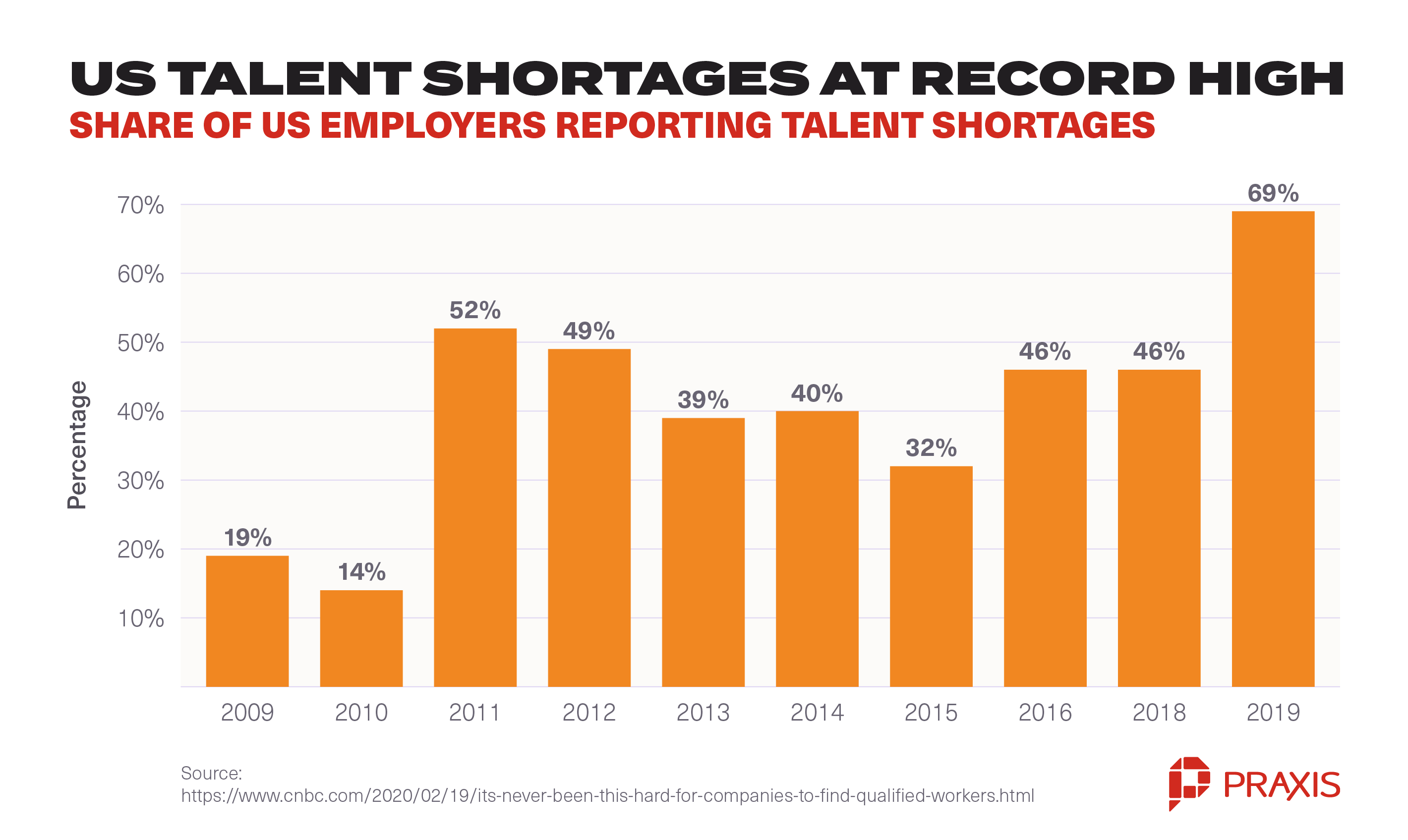
Life After High School
Leaving school is an important moment in your life. Suddenly, your whole life is ahead of you and you realize that you have the freedom to do whatever you want.
It can also be mildly terrifying to be faced with so much choice, which is why it’s understandable that so many people choose college as the “safe” option that allows them to postpone facing this frightening reality.
But whether you postpone it or not, you’ll face the same questions eventually: What’s next? Where do I want to be in 5, 10, 15 years?
The good news is you don’t need to know all the answers yet.
This is the best time in your life to take risks, travel, try new things, and actively experiment to get to know yourself and understand what you want from life – while the stakes are low and you don’t have debts and a mortgage tying you to a particular career or place.
Below, we’ve outlined 12 things you can do instead of college.
What to Do Instead of College
Note, this is far from an exhaustive list.
1. Get a Job
Contrary to what you might have been told, you don’t need a college degree to get a job. Even when jobs list degree requirements, these typically aren’t set in stone. If you have the right skills and you can show prospective employers that you can create value for them, they’re unlikely to care about your (lack of) formal qualifications.
According to a recent survey by Learning House, 90 percent of HR leaders are willing to hire applicants without a four-year degree, and a Harvard Business Review study revealed that 37 percent of employers say that experience is the most important qualification a job applicant can have.
If you’re just leaving school and don’t have much work experience yet, now’s the best time to start getting some by getting an entry-level job. While your peers are paying to sit in lectures and take tests, you can get paid to learn on the job!
Two great types of jobs to gain broad business experience business and build useful skills are sales and customer service. Both of these jobs expose you to the inner workings of the company and direct interactions with customers.
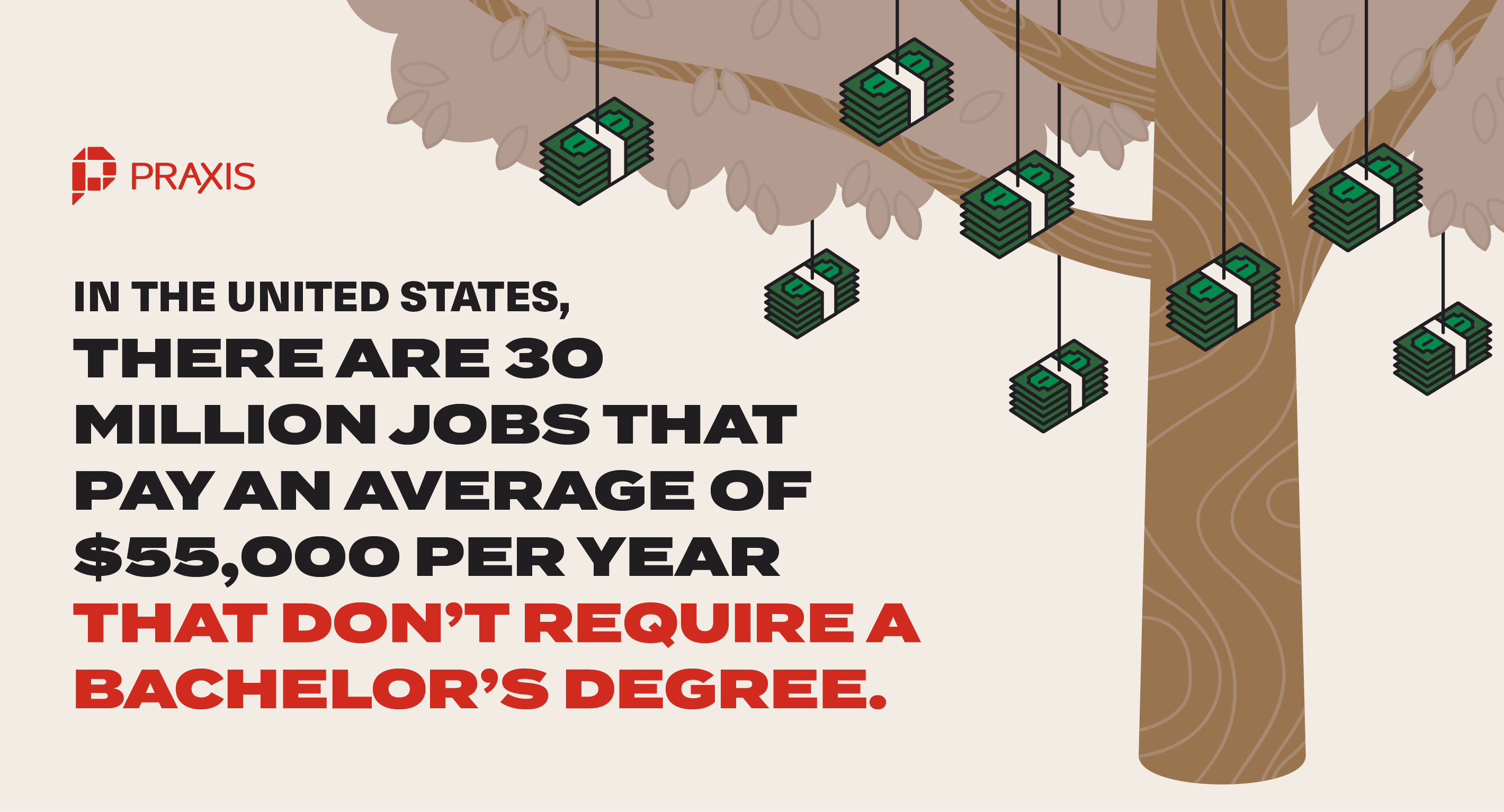
If you need help landing that job, check out our recent post, Getting Your Foot in the Door: 3 Essential Habits that Matter More than Your Resume.
2. Work for Free or Volunteer
While it may seem counterintuitive to work for free, it can be a great way to gain experience, build your portfolio, build your network, and get your foot in the door. You never know, a stint of volunteering or free work could open doors to all kinds of opportunities and referrals if you do an outstanding job.
3. Do an Internship
Internships are a good way to get a glimpse of an industry or company and test whether a particular career is a good fit for you. Internships can also be excellent learning opportunities and can help you build important professional relationships that can come in handy further down the line. Not only that, it’s not uncommon for internships to convert into full-time employment.
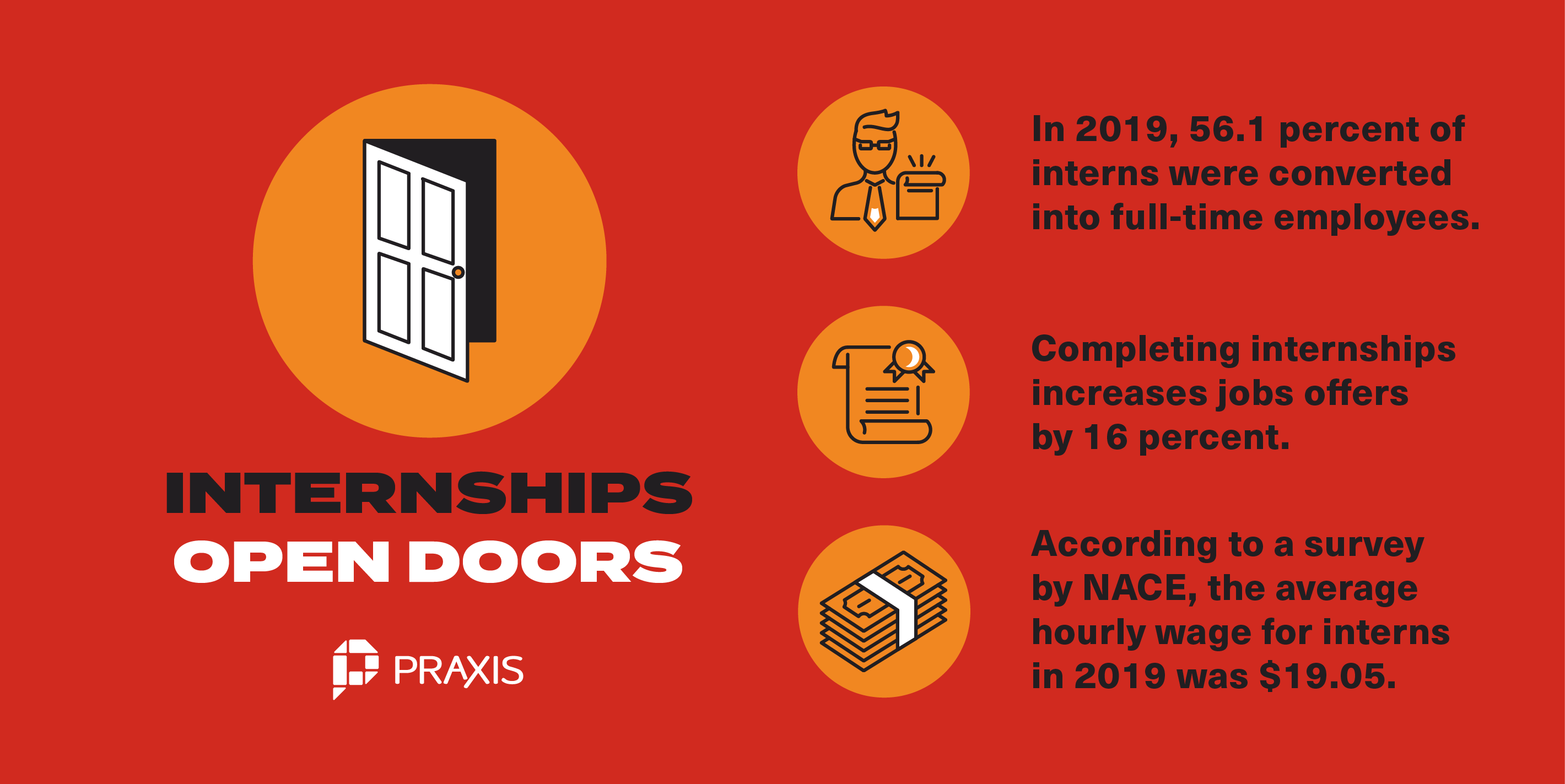
4. Apprentice
Apprenticeships are great because you get paid to learn on the job. Unlike college, where you sit in lecture halls for the better part of four years, apprenticeships are mostly hands-on learning through doing.
In Europe, more than 9.4 million Europeans across 27 countries are currently enrolled in apprenticeships.
While apprenticeships aren’t as commonplace in the U.S. as they are in Europe, they’re gaining traction as more and more employers struggle with talent shortages and opt to take matters into their own hands.
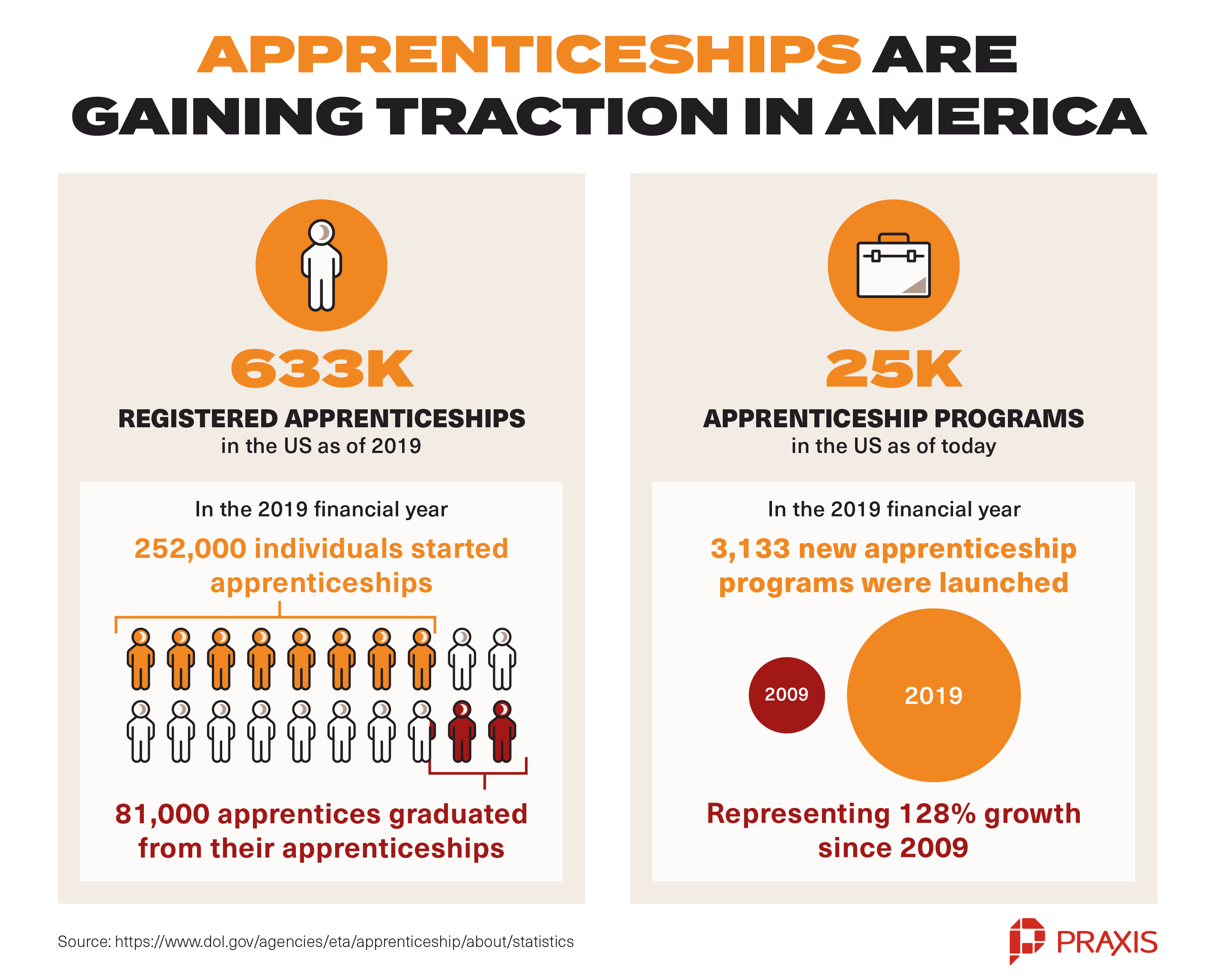
5. Monetize a Creative Talent
If you spend any time online at all, you’ll have seen plenty of examples of young people who make a living by monetizing their hobbies.
Whether it’s a YouTube channel about DIY, a travel blog, a website building business, a Twitch channel where you stream video of yourself gaming, a wedding photography or video editing service, the options are limited only by your imagination.
Whatever your hobby is, odds are there are resources available online that can teach you exactly how to monetize it.
6. Learn a Trade
If the thought of a desk job bores you to tears and you like the idea of working with your hands and seeing the tangible results of your work, why not consider going into a trade?
There are many different trades jobs available, many of them paying more than $50K per year. What’s more, the demand for skilled tradespeople is growing as aging tradespeople retire.
You could become an electrician, carpenter, welder, plumber, pipefitter, mechanic, gas-fitter, HVAC technician, landscaper, foresters, mason – the list goes on.
Many trades jobs don’t require formal education and provide on-the-job training or apprenticeships.
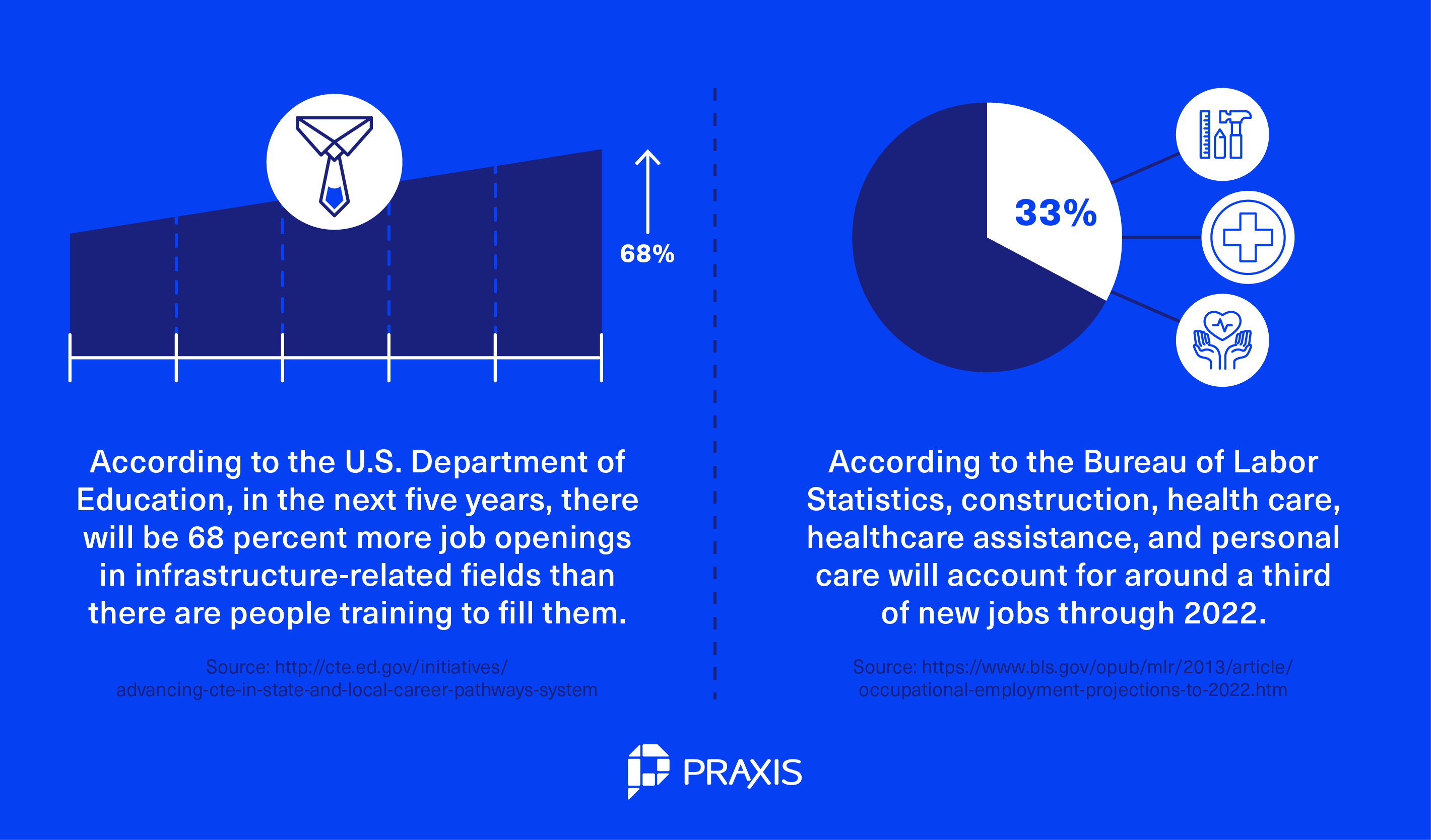
7. Start a Business
If you have an idea for a product or service you could sell, why not start your own business? If you have drive and you’re willing to put in the hard work, it’s not as hard as you might think.
There are plenty of helpful resources available to help you with everything from drafting a business plan to registering your business; creating an investor pitch deck; finding suppliers; hiring employees or freelancers; building a website, handling bookkeeping, payroll, and taxes; setting up an eCommerce site, creating and executing a marketing strategy, and much, much more.
There are more than 22 million self-employed individuals in the U.S., not counting those with employees. That accounts for some 14 percent of the entire workforce.
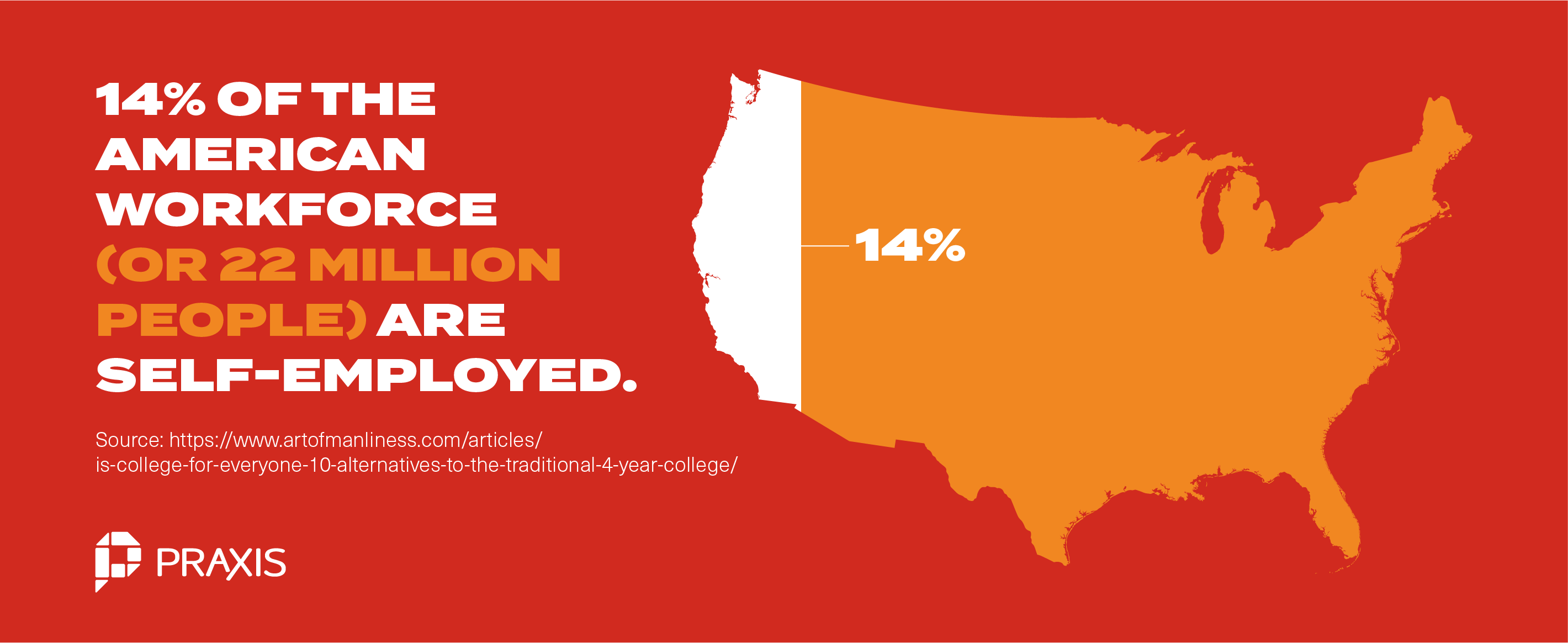
8. Build Your Skills
If you don’t go to college, you save at least 8,000 hours that you could spend gaining mastery at any given skill.
In Outliers, Malcolm Gladwell wrote about how it takes 10,000 hours of dedicated practice to achieve mastery. If you were to work at something for eight hours, five days per week, for fifty weeks a year, you would clock 2,000 hours per year. In other words, spending four or more years at college takes away around 8,000 hours that you could have dedicated to approaching mastery at a skill.
If you chose to teach yourself skill and work at it like a job – or make it your job – for the four years you would have spent in college, you’d be approaching 10,000 hours by graduation. While your peers are entering the workforce, you could have attained a professional level of proficiency in coding, marketing, or just about any skill of your choosing.
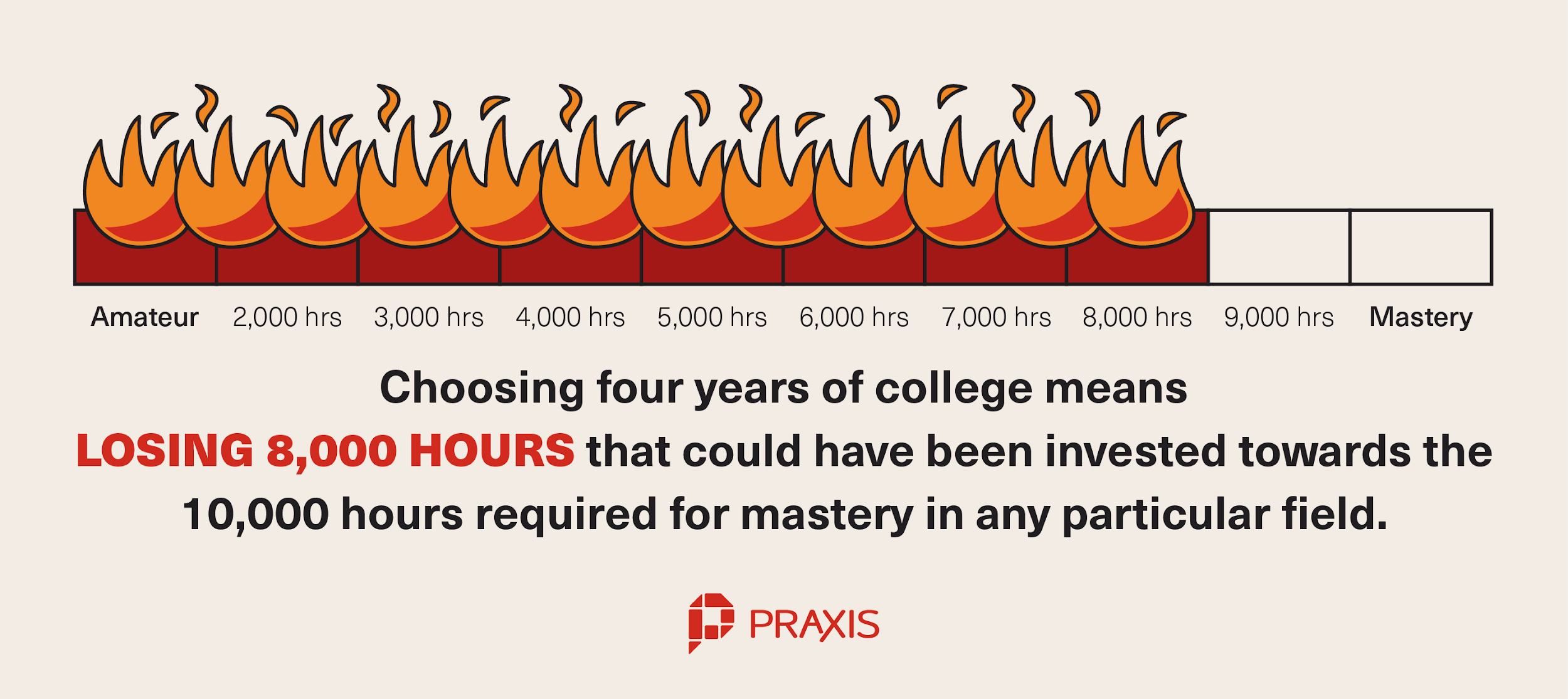
With all the opportunities for self-directed learning and online education resources available today, learning is more accessible than ever before.
To learn more about self-directed learning, read The Beginner’s Guide: Online Learning & Self-Directed Education and Self-Directed Learning: A Primer for Ambitious Young Adults.
9. Travel
There’s no better time to travel than while you’re young, untethered, and the stakes are low.
Travel will test you in new ways and force you to stretch and grow outside of your comfort zone. Learning to navigate language barriers and unfamiliar situations – and interact with locals and other travelers – will yank you right out of your comfort zone and make you a stronger and more resilient person.
If you think that you can’t afford to travel, think again. There are a ton of different ways you can travel on a budget, including Couchsurfing, backpacking, homestays, au pairing, workaways, house sitting, teaching English abroad, crewing on a yacht, and more. At any rate, travel is much cheaper than attending college, and you’ll learn crucial people skills, become more adaptable and comfortable in unfamiliar situations, learn about what excites you and matters to you, and gain a lot of self-confidence.
10. Build an Audience
These days, having a “brand” is more important than having a resume. Every time you publish anything online, you’re building your brand, and potentially (hopefully) building an audience.
Maybe you’re thinking “Why would I want to broadcast my thoughts?”
The benefits of building an audience are twofold: Firstly, your digital footprint serves as a signal that allows prospective clients and employers to get inside your head and see the kind of value you create. Secondly, having an audience makes it a lot easier to monetize your skills and hobbies. If you already have a blog, podcast, or YouTube channel with a solid following, it’s that much easier to sell your book or course or any other product or service you may decide to launch.
Think about the kinds of online content you consume. Which blogs do you read? Which YouTube channels do you watch? Which podcasts do you listen to? Which social media accounts do you follow?
Next, think about your interests and skills and do some research about what kinds of content perform well in those niches, and ask yourself “Could I do that?” Chances are the answer’s yes, although you’ll likely need to learn some new skills – bonus!
If you’re nervous about the whole idea, it’s okay to start out small. Start with a blog – or a Twitter account – before you create a YouTube channel.
The key thing is to publish – or “ship,” as Seth Godin says – as consistently as possible.
11. Enroll in a College Alternative
If you’re feeling a little lost and you’d like a little more structure and guidance, consider enrolling in a bootcamp or college alternative.
This way, you’ll build a lot of practical skills using a hands-on, practice-based learning method while finding out about how business works and how you can apply these skills to your benefit in real-world situations – unlike the college experience, where you learn things in a vacuum.
Praxis is a college alternative designed to optimize the learning experience and shorten the distance between learning and earning. We do this through an intensive 6-month remote bootcamp followed by 6 months of hands-on mentoring as you ease into your new full-time job, which we’ll help you land.
The Praxis program is designed to expose you to a wide variety of work opportunities, help you discover what kind of work excites you, and help you develop the skills you need to succeed in the workplace. You’ll also meet other inspired young people on the same journey as you and build your professional network.
At just $12K Praxis tuition is much more affordable than college. The average annual income for Praxis graduates is $50K, which means that most participants can expect to earn more than the cost of the program before they even graduate. We offer a variety of payment plans and because we believe that our success should be tied to the success of our participants, we offer the Praxis Guarantee: if you’re not hired within 6 months of completing the bootcamp, you won’t pay a cent.
To find out more about Praxis, check out our Program Guide, and feel free to ask us questions in the live chat, or simply apply below.

December 1, 2020
